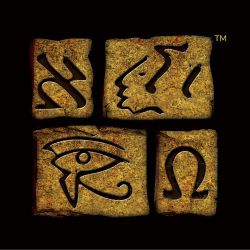
FAIR is a non-profit organization dedicated to providing well-documented answers to criticisms of the doctrine, practice, and history of The Church of Jesus Christ of Latter-day Saints.
FAIR Answers—back to home page

Beginning in the early 90s, theorists have surmised that the Book of Mormon does not need to literally be a historical account of certain ancient inhabitants of the Americas in order to be "true." The primary architect of this theory was Latter-day Saint Anthony D. Hutchinson in a book chapter on the subject.[1]
Hutchinson states:
My thesis is simple. I will state it as directly as possible for the sake of understanding and discussion. Members of [The] Church of Jesus Christ of Latter-day Saints should confess in faith that the Book of Mormon is the word of God but also abandon claims that it is a historical record of the ancient peoples of the Americas. We should accept that it is a work of scripture inspired by God in the same way that the Bible is inspired, but one that has as its human author Joseph Smith, Jr.[2]
According to Hutchinson, the Book of Mormon is the word of God in that God authored the text. Essentially, it is a revelation of God told in story form. Joseph Smith is not translating an ancient text but merely dictating it as he believed it came from the gold plates. Joseph Smith is then a kind of author of the Book of Mormon text. According to Hutchinson, words like "inspiration" and "translation" now need a retooling in the Latter-day Saint vernacular.
In his words:
“I believe that the word of God or the gospel of Jesus Christ is ill-served if not undermined to the degree that current LDS approaches to the Book of Mormon focus on its claims about itself and its value as a sign authenticating LDS religious life rather than on its unique message as a nineteenth century reworking of the biblical tradition.”[3]
Hutchinson didn't remain alone in his advocacy. Close to 10 years after Hutchinson's book chapter was published, Jesus mythicist Robert M. Price similarly argued that Joseph Smith should be viewed as the “inspired author” of the Book of Mormon.[4] There have even been those that have so pompously, foolishly, and, ironically, unreflectively proclaimed that believing in historicity is actually a lower form of religiosity![5] These types of arguments have thus been offered against belief in the historicity of other scripture that is a part of the canon of the Church. This article can then serve as a response to anyone who makes this type of argument against any book of scripture.
This theory in all its minor variations has come to be called the Inspired Fiction Theory (hereafter IFT) for the origins of the Book of Mormon by Latter-day Saint scholar Stephen O. Smoot.[6]
Is belief in the IFT a historically and theologically viable position for Latter-day Saints to take?
In this article, we’ll present a short answer to this question.
The late BYU professor of political science William J. Hamblin has produced the most succinct dilemma for proponents of any variation of the IFT:
Many people can believe that the Book of Mormon is an inspiring document without being true. We as Latter-day Saints consider the Quran to be a book inspired by God but not the book that will lead you to the true God. One of The Book of Mormon’s central purposes is to convince the Jew and Gentile that Jesus is the Christ. The historicity of the appearance of the resurrected Christ to the Nephites here in the Americas is thus essential.
More important about the Book of Mormon is that many of its most important events actually happened. It is less important to worry about how they happened. This is similar to Joseph Smith's First Vision: it is more important that God and Jesus Christ actually appeared to Joseph Smith rather than what color the leaves were that day, what temperature it was, whether or not the light around Joseph Smith was fire or just light, etc.
Below is a Further Reading list that one can use to discover additional reasons that Latter-day Saint scholars have put forth to show the incoherency of the IFT.
Hopefully, this will encourage Latter-day Saints and other interested readers to look into the scholarship that has been written on the Book of Mormon so that they can more articulately defend the book’s historicity. There is a large amount of literature that is easily accessible to interested parties.
Notes

FAIR is a non-profit organization dedicated to providing well-documented answers to criticisms of the doctrine, practice, and history of The Church of Jesus Christ of Latter-day Saints.
We are a volunteer organization. We invite you to give back.
Donate Now